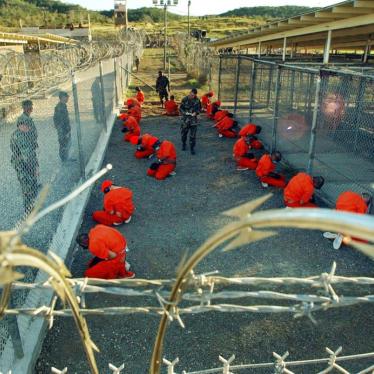Momentum is building for the US to offer some kind of amnesty or clemency to former National Security Agency (NSA) contractor Edward Snowden. Both the New York Times and the Guardian came out in support of the idea last week. And even Rick Ledgett, head of the NSA’s task force on the Snowden leaks, recently told CBS’s 60 Minutes he is open to discussing it.
Our position has long been that the US should exercise its discretion to not prosecute Edward Snowden, in light of serious deficiencies in protections for national security sector workers who report wrongdoing.
Current law is fundamentally flawed in at least two important respects. First, as previous national security whistleblowers have experienced, mechanisms for reporting government wrongdoing through internal channels without reprisal are woefully inadequate. Even a recent report from the President’s own handpicked panel charged with reviewing US government surveillance practices acknowledged the problem. Second, in the event of prosecution under the Espionage Act, existing law does not recognize a legal defense that the public interest served by the disclosures outweighs the harm resulting from the breach of secrecy.
It’s certainly the case that Edward Snowden had few internal channels available to report wrongdoing. Yet even had such channels existed, they may not have made a difference, because the government had so institutionalized the wrongdoing. The surveillance that Snowden has revealed—with the US government gathering unprecedented amounts of information from its own citizens and others around the world without their knowledge—was authorized, and is being conducted, within a highly secretive system with few checks on abuse. Common wisdom in the executive branch, in the absence of public scrutiny or public debate, was that the programs were not problematic. And even members of Congressional oversight committees who disagreed were unable to speak out about it.
In these circumstances, Snowden can reasonably claim that the only way to address the pervasive wrongdoing he saw was to go public (though he does say he tried going through internal channels first). He should be able to present a public interest defense—yet the law under which he is being charged doesn't allow him to do so.
The government needs to acknowledge its responsibility for this situation.
It is reasonable for the US to want to discourage government employees from leaking classified information merely because in their opinion it’s in the country’s best interest. But when a government engages in secret wrongdoing while making it essentially impossible for individuals to effectively report that wrongdoing, it has to accept responsibility for the conduct that results. Part of that responsibility should entail leniency towards Snowden.
Some have expressed concern that offering Snowden some kind of clemency would set a dangerous precedent. There’s a way to address that concern: the President should submit a serious proposal to strengthen protections for national security whistleblowers. If future whistleblowers had a way to effectively report misconduct, there would presumably be less need to go outside official channels. The US should also adopt robust measures to increase transparency around matters of great public import, such as the surveillance programs Snowden disclosed. Finally, the US should establish a public interest defense to charges for breach of secrecy laws, to be used in cases where, even with stronger official reporting channels, individuals may still feel it necessary to go outside them to effectively report abuse. It’s time for the government to own up to its own failings in the Snowden affair, and create a new path forward.









